new posts in all blogs
Viewing: Blog Posts Tagged with: United Nations, Most Recent at Top [Help]
Results 26 - 43 of 43
How to use this Page
You are viewing the most recent posts tagged with the words: United Nations in the JacketFlap blog reader. What is a tag? Think of a tag as a keyword or category label. Tags can both help you find posts on JacketFlap.com as well as provide an easy way for you to "remember" and classify posts for later recall. Try adding a tag yourself by clicking "Add a tag" below a post's header. Scroll down through the list of Recent Posts in the left column and click on a post title that sounds interesting. You can view all posts from a specific blog by clicking the Blog name in the right column, or you can click a 'More Posts from this Blog' link in any individual post.

By: ChloeF,
on 4/25/2014
Blog:
OUPblog
(
Login to Add to MyJacketFlap)
JacketFlap tags:
United Nations,
usa,
israel,
VSI,
israeli,
Very Short Introductions,
John Kerry,
palestine,
negotiations,
palestinian,
mahmoud,
netanyahu,
Israeli-Palestinian conflict,
*Featured,
palestinians,
Benjamin Netanyahu,
International Court of Justice,
Mahmoud Abbas. UN,
Martin Bunton,
abbas,
bunton,
Politics,
Current Affairs,
Add a tag

By Martin Bunton
It may be premature to completely write off the recent round of the US-sponsored Israeli-Palestinian peace process. The talks faltered earlier this month when Israel failed to release a batch of prisoners, part of the initial basis for holding the negotiations launched last July. The rapidly disintegrating diplomacy may yet be salvaged. But the three main actors have already made it known they will pursue their own initiatives.
They each may think that their actions will allow them to accumulate more leverage, maybe help position themselves in anticipation of a resumption of bilateral negotiations which, for over twenty years now, has been directed towards establishing a Palestinian state living peacefully alongside Israel. But it is also possible that the steps the parties take will instead deepen the despair of a two state framework ever coming to fruition.
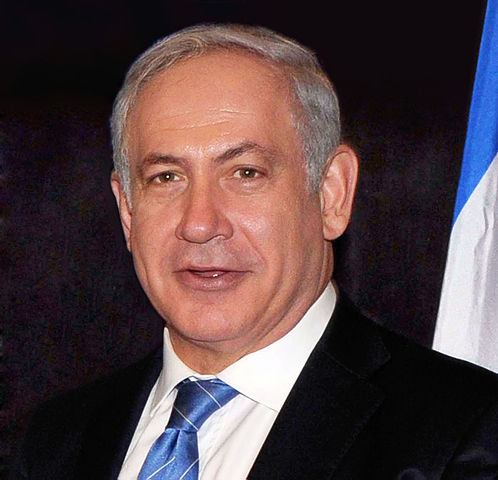
Benjamin Netanyahu
The United States will focus their attention to other pressing issues, such as securing a deal on Iran’s nuclear program. Progress on this front may encourage, perhaps even empower, the Obama administration to resume Israeli-Palestinian negotiations later in its term. But the chances of their success will depend less on yet another intense round of shuttle diplomacy by US Secretary of State John Kerry, and more on whether a distracted Obama presidency will be prepared to pressure Israel to end its occupation. True, Obama enjoys the freedom of a second term presidency (unconcerned about the prospects of re-election). So far however he hasn’t appeared at all inclined to challenge Israeli prime minister Benjamin Netanyahu.
As for Israel, the Netanyahu government will take steps to make life even harder for Palestinians under occupation, and no doubt further entrench its settlement infrastructure in the West Bank, the territory on which Palestinians want to build their own state. Netanyahu, now one of the longest serving prime ministers in Israeli history, has provided very few indications that he is willing to enable the Palestinians to build a viable and contiguous state. He appears confident that the status quo is tenable, and that occupation and settlement of the West Bank can continue to violate international law without facing any serious repercussions. The more likely outcome of such complacency, however, is the irrevocable damage inflicted on the prospects of a two state solution and the harm done to Israel’s security, possibly subjecting it to a wide ranging international boycott movement.
Meanwhile, the Palestinian government, led by Mahmoud Abbas, will desperately strive to ensure that the breakdown of talks not lead to the collapse of his Palestinian Authority. Abbas may seek to use this opportunity to lessen the overall reliance on US sponsorship and achieve Palestinian rights in international bodies such as the UN and the International Court of Justice. This move may placate the growing number of Palestinians who until now have angrily dismissed Abbas’ participation in American-sponsored bilateral negotiations as doing little more than provide political cover to the on-going Israeli occupation, begun almost 50 years ago. But the majority of Palestinians will continue to disparage of how the pursuit of their national project has been paralysed by the weakness and corruption of their leaders and the absence of a unified government and coherent strategy.
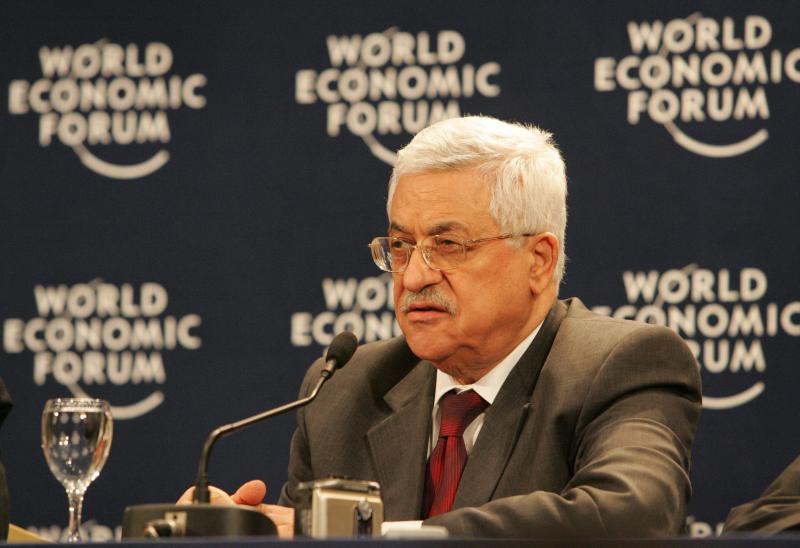
Mahmoud Abbas
Though no side wants to be blamed for the collapse of negotiations, it is easy to see how a cycle of action and recrimination could scupper all attempts to revitalize them. More to the point, however, is to ask whether the steps taken will end up burying the very prospects of a two-states solution to the century long conflict which the negotiations are supposed to achieve.
Martin Bunton is an Associate Professor in the History Department of the University of Victoria and author of the recently published The Palestinian-Israeli Conflict: A Very Short Introduction (Oxford University Press, 2013).
The Very Short Introductions (VSI) series combines a small format with authoritative analysis and big ideas for hundreds of topic areas. Written by our expert authors, these books can change the way you think about the things that interest you and are the perfect introduction to subjects you previously knew nothing about. Grow your knowledge with OUPblog and the VSI series every Friday, subscribe to Very Short Introductions articles on the OUPblog via email or RSS, and like Very Short Introductions on Facebook.
Subscribe to the OUPblog via email or RSS.
Subscribe to only current affairs articles on the OUPblog via email or RSS.
Image credits: (1) Benjamin Netanyahu. Public domain via Wikimedia Commons; (2) Mahmoud Abbas. By World Economic Forum from Cologny, Switzerland (AbuMazem). CC-BY-SA-2.0 via Wikimedia Commons
The post Kerry On? What does the future hold for the Israeli-Palestinian peace process? appeared first on OUPblog.


By: Kyle Zimmer,
on 3/7/2014
Blog:
First Book
(
Login to Add to MyJacketFlap)
JacketFlap tags:
women,
United Nations,
UN,
books,
kids,
Books & Reading,
Education,
Kenya,
girls,
First Book,
California,
Kyle Zimmer,
Success Stories,
International Women's Day,
First Book Partners,
kids in need,
Dinah Mwangi,
Girls Inc. of Alameda County,
Katie Hendricks,
raeding,
Add a tag
496 million. That’s how many women in the world can’t read or write even the most simple sentence. Many women never have the opportunity to reach 6th grade, and some don’t get to go to school at all.
Today, we join citizens around the world in celebrating International Women’s Day, and I want to share the stories of Dinah Mwangi and Katie Hendricks, two special women whose lives exemplify the theme of this year’s celebration, “Equality for Women is Progress for All.”
 Dinah makes progress for all in Nairobi, Kenya. While waiting in line at a carwash, Dinah noticed two young boys straining to see what she was reading – a children’s book she had purchased for her niece. When she asked if they would like to join her, the boys lit up.
Dinah makes progress for all in Nairobi, Kenya. While waiting in line at a carwash, Dinah noticed two young boys straining to see what she was reading – a children’s book she had purchased for her niece. When she asked if they would like to join her, the boys lit up.
They read, and laughed and shared stories with Dinah. Then they told her they had no books of their own.
Dinah started buying books with her own salary and recruited volunteers to read and distribute them to kids each Saturday. In less than three months, she had over 500 kids participating. Now she’s pursuing relationships with Kenyan publishers, corporations and funders in order to expand her reach and deepen her impact.
On the other side of the world, Katie makes progress for all by helping girls from low-income families in California’s East Bay bridge the gap between school and home.
 As a young teacher, Katie yearned to improve all aspects of her students’ lives, inside and outside the classroom. Her holistic approach led her to create Girls Inc. of Alameda County, a program that inspires girls to be strong, smart and bold. Katie and her team reinforce what their girls learn at school, help them become fluent English speakers, provide them with healthy meals and expose them to subjects girls aren’t always encouraged to study, like science, technology and athletics.
As a young teacher, Katie yearned to improve all aspects of her students’ lives, inside and outside the classroom. Her holistic approach led her to create Girls Inc. of Alameda County, a program that inspires girls to be strong, smart and bold. Katie and her team reinforce what their girls learn at school, help them become fluent English speakers, provide them with healthy meals and expose them to subjects girls aren’t always encouraged to study, like science, technology and athletics.
By improving the lives of girls in California’s East Bay, Katie also improves the lives of their family members, teachers, friends and classmates.
Dinah and Katie represent what’s possible when women have the education, resources and motivation to make progress for all. Their immediate impact on the kids they serve is immense. Equally powerful, however, is how their spirit and service ripple through entire communities, transform lives and change the future.
In addition to celebrating heroic women like Dinah and Katie, I invite you to join me in recommitting ourselves to becoming a powerful force for equality.
The gender gap has closed significantly over the past few decades, but we still have a long way to go. In some countries, less than a quarter of women finish primary school; 496 million women around the world cannot read or write a simple sentence; and globally, women only reach 93 percent of men’s educational attainment.
I believe the path to equality is through access to quality education. That’s why First Book is equipping educators like Dinah and Katie with brand-new books and resources for the kids they serve, expanding our network to reach women and girls around the globe and lifting up the voices of an unprecedented community of individuals serving children at the base of the economic pyramid.
Please consider a gift to First Book today. Together, we can support the work of heroic women like Dinah and Katie around the world.
The post 496 Million Women appeared first on First Book Blog.

I was struck yesterday by a news item about a UN report that states that the number of refugees in the world is now at a twenty year high – with a person leaving their home to seek refuge and safety every four seconds. Every four seconds. That is the state of our world. Syria alone now accounts for 1.6 million refugees. And world wide 46 percent of refugees are under eighteen – essentially children by our own definition.
So last year approximately 2 million children left their homes, sometimes with parents, sometimes without, to find a safer place to live. Children born into war, prejudice and starvation. These two million joined the seven million who are already out there.
.jpg)
Contrary to the image portrayed by some sectors of the media the majority of these refugees are being supported and looked after by the developing world – 86 percent of all refugees are in the care of the developing world.
And a statistic that took me by surprise, one in four of all refugees is from Afghanistan – and has been for the past 32 years. For 32 years there has been a steady stream of people fleeing Afghanistan in search of safety. A country that the US has spent $636,000,000,000 being at war with (and this number increases every second – see Cost of War website for the figures)
Today is World Refugee Day – the UN has a page detailing how people can help refugees and you can find it here. Small things can make a difference.



By: KimberlyH,
on 2/18/2013
Blog:
OUPblog
(
Login to Add to MyJacketFlap)
JacketFlap tags:
Alan Redfern,
Constantine Partasides,
Fifth Edition,
International Arbitration,
international chamber of commerce,
Martin Hunter,
Redfern and Hunter on International Arbitration,
redfern,
blackaby,
partasides,
bruckhaus,
freshfields,
deringer,
arbitrators,
Law,
china,
Videos,
Current Affairs,
India,
Multimedia,
United Nations,
Latin America,
United States,
*Featured,
Law & Politics,
arbitration,
Add a tag
How can we outline the discussion on the law and practice of international arbitration? What is the legal process for the drafting of the arbitration agreements or the enforcement of arbitral awards? Long-time international arbitrators Constantine Partasides, Alan Redfern, and Martin Hunters — co-authors of Redfern and Hunter on International Arbitration: Fifth Edition with Nigel Blackaby — sat down with the OUPblog to discuss the latest developments in their field. Watch the following videos to learn more about current views on international arbitration and what changes they expect to see in the future.
How did the idea of writing a book come about?
Click here to view the embedded video.
What challenges are arbitrators facing now?
Click here to view the embedded video.
How do you view the future of international commercial arbitration?
Click here to view the embedded video.
Nigel Blackaby, Constantine Partasides, Alan Redfern, and Martin Hunter are the authors of Redfern and Hunter on International Arbitration: Fifth Edition. Nigel Blackaby is one of the partners of the international arbitration group at Freshfields Bruckhaus Deringer in Washington, DC. Constantine Partasides is a one of the partners of the international arbitration group at Freshfields Bruckhaus Deringer in London. Alan Redfern is the barrister and international arbitrator at One Essex Court Chambers in London. Martin Hunter is currently a barrister and international arbitrator at One Essex Court Chambers.
Subscribe to the OUPblog via email or RSS.
Subscribe to only law and politics articles on the OUPblog via email or RSS.
The post What does the future hold for international arbitration? appeared first on OUPblog.

The United Nations Global Compact can be a secret weapon for professional authors in getting an unheard-of-before title into the mainstream distribution channel, as retailers increasingly look for a more global literary flavor to offer readers. As a committed stakeholder of the United Nations Global Compact, and one of the few U.S. book publishing partners to maintain an active role, Schiel & Denver is pleased to add our support to the Second Committee of the United Nations General Assembly (Economic and Financial Committee) as they took the progressive step of adopting a resolution on the evolving relationship between the United Nations and the private sector in the American publishing industries.
For those unaware, the Global Compact initiative has made substantial progress for book publishing in America, less than a year after the critical UN Conference on Sustainable Development (Rio+20), which brought together different factions of government leaders (from both developed and developing nations) in an effort to build consensus on a more sustainable course for representing publishing and printing business in partnership with governments, local authorities, civil society and UN entities.
As a book publishers with a modern chain of custody gradually ending dependence on wood fibers and pulp to make our books, and keen on embracing digital eBook publishing – particularly in our Christian book publishing division, our view is that the Rio+20 Corporate Sustainability Forum is shaping up to be a vibrant and unparalleled platform for innovative businesses like Schiel & Denver, and key stakeholders to demonstrate real action, make commitments and mobilize genuine consumer growth towards a more environmentally sustainable future.
Putting our authors first continues to be Schiel & Denver’s primary mission, and with on-going author support on a daily basis – our book publishing program is designed to provide a firm infrastructure for our partners, leverage opportunities and harness our book publishing logistics. Schiel & Denver succeeds at building momentum for our author’s books, as they move into the competitive marketplace to sell to the book buying public.
As 2012 closes, Schiel & Denver is pleased we continue to be of value for our passion and commitment to new writers, not least the broad efforts that our business plays to help set a better course for emerging literary talent. Being able to ‘tap’ the United Nations Global Compact’s mainstream benefits for global book distribution forms a corporate sustainability service that our authors’ need and deserve.
Book publisher and
Self Publishing
Information provided by S&D
book publishers and
christian book publishers as a courtesy.


By: Alice,
on 12/3/2012
Blog:
OUPblog
(
Login to Add to MyJacketFlap)
JacketFlap tags:
Current Affairs,
Power,
United Nations,
application,
custom,
*Featured,
international law,
Law & Politics,
league of nations,
treaties,
Charter of the United Nations,
international organizations,
international system,
John Louth,
legal system,
Merel Alstein,
public international law,
brownlie,
merel,
alstein,
louth,
Add a tag
By John Louth and Merel Alstein
What is a state? We think we know but when we compare things that are (e.g. Monaco, Andorra, Liechtenstein) to things that are not (e.g. Scotland, Kosovo, Palestine) our understanding unravels. This is a core question of international law and the troubling thing is that the best experts in the subject wouldn’t give a consistent explanation for the differences between these examples.
The UN is the closest thing we have to a world government. It is founded on a legal document (The UN Charter), it has a Court to resolve disputes between members, it has a Parliament of states (the General Assembly), and crucially, unlike its predecessor the League of Nations, it can authorize collective enforcement of its will (via the Security Council). There are dozens of other international organizations getting on with regulating different aspects of the world’s behaviour, so how come in spite of this appearance of a legal order, international law seems incapable of addressing urgent problems of poverty, violence, and climate change? How come the powerful get away with breaking the law? Why does justice so often get trumped by expediency?

Maybe that’s not fair — our national governments suffer from these same failings too. They do some basic things well (international law does a great job co-ordinating postage and telecoms) but can’t seem to manage the big breakthroughs. Surely there is a difference though: we created the international system to improve on what our governments can achieve on their own. If it can’t do better, then what is the point?
Today more people than ever before are engaged with international law. Many are, as one would expect, learning and applying it, but an increasingly vocal proportion question its role, its effectiveness and even its very existence. If it is to fulfil its promise, international law needs to rise to the following challenges.
(1) Is it law or is it just about power?
International lawyers are tired of hearing this question but it isn’t addressed to them. It is addressed to the leaders who take part in a legal order yet subvert it at the same time. Every state sends and receives diplomats yet simultaneously carries out espionage. States choose to use law to enforce some obligations whilst insisting not to be bound by others. The late great Sir Ian Brownlie used to say “if you doubt the reality of international law, have a look at my bank balance”, i.e. his clients (states) were paying him so they must believe it in. But that is just the problem — the very actors that Brownlie cited as proof of the reality of the law are the ones who can also make it seem like an optional extra, not a source of obligation.
(2) Who does it apply to?
Nowadays many of the entities regulated by so-called international law are not nations: corporations, international organizations, indigenous peoples, individuals, armed resistance groups. Cases at the International Criminal Court pit its Prosecutor (an individual acting on behalf of an international organization) against an individual criminal defendant. Then a group comes along who certainly seem to merit the protection of international law, such as the Guantanamo detainees, and we find that they don’t fit into any accepted legal category. If states can insist that only those laws they consent to can bind them, what about all of these other entities? Do they get more of a say in the content and application of the law? Should there be gaps in protection from human rights abuses?
(3) Where does it reach?
This follows from the last question. International law claims to reach directly into domestic legal systems; treaties apply to situations and places that nobody ever expected when they were first agreed. Then we have the increased use of outer space and the virtual arena of cyber space to contend with. Will these develop as adaptations of international law and if so would that not begin to stretch “international law” to the point where it is so diverse as to be meaningless?
(4) Are we expecting too much from a legal system?
International law can only move forward when there is a political consensus that it should. In the absence of political will, it is impossible to subject new areas to international law or to increase its reach. It is hard to square this compromising approach with international law’s progressive and at times utopian spirit. The planned recognition of Palestine as a state is a good illustration of the pragmatic dilemma: the legal order is advanced (by recognizing a new state) whilst also undermined (by restricting what statehood means).
(5) How can we know the content of international law?
The two primary sources of international law are custom and treaties. Whilst nothing involving lawyers is ever clear cut, treaties are vastly easier to engage with than custom, the exact nature of which remains shrouded in mystery. How customary law is formed and who is bound by it are matters that are crying out for authoritative resolution. For international law to be taken more seriously it is vital that the processes and content of custom are clarified and made available to all those who might use it or be affected by it.
Scholarly legal publishing has its part to play. We cannot of course makes statesmen and women take their obligations more seriously nor put in place the economic prosperity in which ideas of justice and fairness have a better chance of taking root. We can however nurture scholarship which looks to clarify the nature, content, and scope of international law.
John Louth is editor-in-chief of academic law books, journals and online, and head of Oxford University Press’ US law office. Merel Alstein is commissioning editor for books in the area of international law.
Subscribe to the OUPblog via email or RSS.
Subscribe to only law and politics articles on the OUPblog via email or RSS.
View more about The Charter of the United Nations: A Commentary on the 

Image credit: School of Law. Photo by SeanPavonePhoto, iStockphoto.

As you may know, today is International Women’s Day. Although it has become a bit of a Valentine’s Day sequel in some communities, many countries are still recognizing the holiday for it’s original purpose. The United Nations created this day to recognize women who have impacted our world, as well as a way to focus public service efforts towards women in need around the world.
Each year since 1975 (when the United States began celebrating IWD), the United Nations selects a theme to focus the day’s efforts. This year’s theme is “Empower Rural Women- End Hunger and Poverty”, and I encourage you to find out more about what you can do to participate in this important cause.
Another way to celebrate women is by learning about a woman who has changed history, particularly those who have not received recognition for her contributions. Remembering these women, many of whom weren’t recognized in their own day or have since been forgotten, is an important aspect of realizing how far we have come, and how far we have yet to go, in terms of women’s rights. Click on the image below for a selection of Lee & Low titles that introduce you to some such women, each of whom, we believe, should have her own holiday.

Filed under:
Diversity Links,
Holidays Tagged:
International Women's Day,
IWD,
United Nations,
women in history 








By: Kirsty,
on 12/6/2011
Blog:
OUPblog
(
Login to Add to MyJacketFlap)
JacketFlap tags:
United Nations,
public health,
*Featured,
Law & Politics,
Health & Medicine,
The Bottom Line or Public Health,
indigenous people,
extractive industries,
intellectua property,
william h. wiist,
extractive,
Medical Mondays,
Add a tag
By William H. Wiist
Because the corporate goal is to obtain the highest profit possible, not social welfare, public health or environmental sustainability, business interests often give little or no consideration to the effects of corporate practices on indigenous peoples. Thus, the estimated 257 to 370 million indigenous peoples in about 5,000 communities in 70 countries, speaking 5,000 of the 6,000 existing languages, often experience severe detrimental consequences from commercial activity. The effects of extractive industries such as mining, agricultural crops and timber, and the theft of intellectual property rights illustrate some of those consequences.
Extractive industries
In many parts of the world, indigenous people inhabit areas that have been identified as areas with abundant resources that are in demand as profitable ventures for global industries:
Forests for the logging industry; oil and gas for exploration and drilling industries; gold and other minerals for mining companies and agriculture; use of the land for mono crop farming such as tobacco, palm oil, coffee, rubber; dams on indigenous land to create lakes or use of rivers to produce electrical energy; and nature reserves established in areas where they displace the indigenous peoples living there.
These extractions are reminiscent of early European appropriation of the Americas under the concept of “terra nulius” that is, land not belonging to anyone, and therefore available for the taking, even though millions of indigenous peoples had inhabited an area for thousands of years prior to European explorations.
The various extractive industries have several effects in common relative to indigenous peoples: [1]
1. The industrial operations displace indigenous people from their ancestral homes and land which have been integral to their spiritual, physical, mental and emotional life, requiring indigenous people to move to other remote but unfamiliar areas, or to migrate to the unsanitary, unhealthful fringes of urban areas with unlikely means of earning a decent livelihood. As a result the indigenous people experience social disorganization in their relationships to each other, and disruption of their relations with other indigenous group. They are forced to interact in new and unfamiliar settings with unfamiliar types of people, practices and ways of behavior.
2. This displacement, dispersion and migration leads to loss of their language and culture.
3. Their ancestral land may be confiscated with no or little financial remuneration for the land or for the extracted substance.
4. With loss of land, they lose their traditional livelihood, subsistence farming or place for gathering food and traditional medicinal plants.
5. Their sacred land or water be polluted by the extractive operations.
6. Contacts with extractive industry workers may expose the indigenous peoples to new diseases that they then transmit to their families, neighbors and other groups of indigenous peoples.
The Case of the Nahua and Nati Peoples in Peru
Napolitano described a 20 year history of an indigenous peoples’ contact with extractive industries within a territorial reserve the government established for four groups of indigenous people in an isolated area of the Amazon River. [2] Logging of mahogany and cedar, and oil operations in or near the area during the 1970s and 1980s led to some violence against the industry operations, some displacement of one indigenous group, and interethnic clashes between groups. In about 2001, work began on a gas field concession granted by the Peruvian government, 75 percent of which was within the territorial reserve.
Loggers working in an area of the Amazon encountered members of the Nahua indigenous group. Some of the Nahua went down river and interacted with the loggers. Upon their return up river, epidemics, including pneumonia, compli

By: Lauren,
on 11/3/2011
Blog:
OUPblog
(
Login to Add to MyJacketFlap)
JacketFlap tags:
Africa,
Middle East,
nuclear war,
United Nations,
Military,
israel,
Iran,
nuclear weapons,
What Everyone Needs To Know,
*Featured,
Louis René Beres,
nuclear energy,
nuclear missiles,
Add a tag
The United States, preemption, and international law
By Professor Louis René Beres
Admiral Leon “Bud” Edney
General Thomas G. McInerney
For now, the “Arab Spring” and its aftermath still occupy center-stage in the Middle East and North Africa. Nonetheless, from a regional and perhaps even global security perspective, the genuinely core threat to peace and stability remains Iran. Whatever else might determinably shape ongoing transformations of power and authority in Tunisia, Egypt, Libya, Syria and Saudi Arabia, it is apt to pale in urgency beside the steadily expanding prospect of a nuclear Iran.
Enter international law. Designed, inter alia, to ensure the survival of states in a persistently anarchic world – a world originally fashioned after the Thirty Years War and the Peace of Westphalia in 1648 – this law includes the “inherent” right of national self-defense. Such right may be exercised not only after an attack has already been suffered, but, sometimes, also, in advance of an expected attack.
What can now be done, lawfully, about relentless Iranian nuclear weapons development? Do individual states, especially those in greatest prospective danger from any expressions of Iranian nuclear aggression, have a legal right to strike first defensively? In short, could such a preemption ever be permissible under international law?
For the United States, preemption remains a part of codified American military doctrine. But is this national doctrine necessarily consistent with the legal and complex international expectations of anticipatory self-defense?
To begin, international law derives from multiple authoritative sources, including international custom. Although written law of the UN Charter (treaty law) reserves the right of self-defense only to those states that have already suffered an attack (Article 51), equally valid customary law still permits a first use of force if the particular danger posed is “instant, overwhelming, leaving no choice of means and no moment for deliberation.” Stemming from an 1837 event in jurisprudential history known as the Caroline, which concerned the unsuccessful rebellion in Upper Canada against British rule, this doctrine builds purposefully upon a seventeenth-century formulation of Hugo Grotius.
Self-defense, says the classical Dutch scholar in, The Law of War and Peace (1625), may be permitted “not only after an attack has already been suffered, but also in advance, where the deed may be anticipated.” In his later text of 1758, The Right of Self-Protection and the Effects of Sovereignty and Independence of Nations, Swiss jurist Emmerich de Vattel affirmed: “A nation has the right to resist the injury another seeks to inflict upon it, and to use force and every other just means of resistance against the aggressor.”
Article 51 of the UN Charter, limiting self-defense to circumstances following an attack, does not override the customary right of anticipatory self-defense. Interestingly, especially for Americans, the works of Grotius and Vattel were favorite readings of Thomas Jefferson, who relied heavily upon them for crafting the Declaration of Independence of the United States of America.
We should also recall Article VI of the US Constitution, and assorted US Supreme Court decisions. These proclaim, straightforwardly, that international law is necessarily part of the law of the United States.
The Caroline notes an implicit distinction between preventive war (which is never legal), and preemptive war. The latter is not permitted merely to protect oneself against an emerging threat, but only when the danger posed is “instant” and
 You might know Monique Coleman best as Taylor McKessie from the High School Musical series, but she’s recently taken on a new role that she thinks is the most important of her life. She is working with the United Nations as the first ever UN... Read the rest of this post
You might know Monique Coleman best as Taylor McKessie from the High School Musical series, but she’s recently taken on a new role that she thinks is the most important of her life. She is working with the United Nations as the first ever UN... Read the rest of this post

By: Lauren,
on 5/4/2011
Blog:
OUPblog
(
Login to Add to MyJacketFlap)
JacketFlap tags:
Current Events,
Middle East,
United Nations,
terrorism,
Military,
legal,
nato,
Al-Qaeda,
osama bin laden,
killing,
assassination,
*Featured,
Louis René Beres,
gaddafi,
michael scheuer,
international law,
Law & Politics,
gadhafi,
US,
Add a tag
By Louis René Beres
Osama bin Laden was assassinated by U.S. special forces on May 1, 2011. Although media emphasis thus far has been focused almost entirely on the pertinent operational and political issues surrounding this “high value” killing, there are also important jurisprudential aspects to the case. These aspects require similar attention. Whether or not killing Osama was a genuinely purposeful assassination from a strategic perspective, a question that will be debated for years to come, we should now also inquire: Was it legal?
Assassination is ordinarily a crime under international law. Still, in certain residual circumstances, the targeted killing of principal terrorist leaders can be defended as a fully permissible example of law-enforcement. In the best of all possible worlds, there would never be any need for such decentralized or “vigilante” expressions of international justice, but – we don’t yet live in such a world. Rather, enduring in our present and still anarchic global legal order, as President Barack Obama correctly understood, the only real alternative to precise self-defense actions against terrorists is apt to be a worsening global instability, and also escalating terrorist violence against the innocent.
Almost by definition, the idea of assassination as remediation seems an oxymoron. At a minimum, this idea seemingly precludes all normal due processes of law. Yet, since the current state system’s inception in the seventeenth century, following the Thirty Years’ War and the resultant Peace of Westphalia (1648), international relations have not been governed by the same civil protections as individual states. In this world legal system, which lacks effective supra-national authority, Al Qaeda leader bin Laden was indisputably responsible for the mass killings of many noncombatant men, women and children. Had he not been assassinated by the United States, his egregious crimes would almost certainly have gone entirely unpunished.
The indiscriminacy of Al Qaeda operations under bin Laden was never the result of inadvertence. It was, instead, the intentional outcome of profoundly murderous principles that lay deeply embedded in the leader’s view of Jihad. For bin Laden, there could never be any meaningful distinction between civilians and non-civilians, innocents and non-innocents. For bin Laden, all that mattered was the distinction between Muslims and “unbelievers.”
As for the lives of unbelievers, it was all very simple. These lives had no value. They had no sanctity.
Every government has the right and obligation to protect its own citizens. In certain circumstances, this may even extend to assassination. The point has long been understood in Washington, where every president in recent memory has given nodding or more direct approval to “high value” assassination operations. Of course, lower-value or more tactical assassination efforts in Iraq and Afghanistan have become a very regular feature of U.S. special operations.
There are some points of legal comparison with the recent NATO strike that killed Moammar Gadhafi’s second-youngest son, and his three grandchildren. While this was a thinly-disguised assassination attempt that went awry, the target, although certainly a supporter of his own brand of terrorists, had effectively been immunized from any deliberate NATO harms by the U.N. Security Council’s limited definition of humanitarian intervention.
It is generally

By: Lauren,
on 8/23/2010
Blog:
OUPblog
(
Login to Add to MyJacketFlap)
JacketFlap tags:
Law,
Current Events,
Iraq,
A-Featured,
Afghanistan,
United Nations,
omar,
unicef,
child soldiers,
Guantanamo,
Social Work,
recruitment,
juvenile court,
omar khadr,
paris principles,
pow,
khadr,
grenade,
mapp,
speer,
optional,
Add a tag
By Susan C. Mapp
On December 23, 2002, the United States ratified the Optional Protocol to the Convention on the Rights of the Child on the involvement of children in armed conflict. This document defines a “child soldier” as a person under the age of 18 involved in hostilities. This raises the minimum age from the age of 15 set in the Convention on the Rights of the Child. Neuroscience is now providing us with the tools to see what many have long suspected: the adolescent brain has not yet fully developed. In particular, the prefrontal cortex, which regulates complicated decision-making and calculation of risks and rewards is not yet fully developed. The American Bar Association used this knowledge in its support of the ban on the death penalty for minors.
Article 7 of this document states that nations who are parties to it will cooperate in the, “rehabilitation and social reintegration of persons who are victims.” The Declarations and Reservations made by US related primarily its recruitment of 17-year-olds and noting that the ratification did not mean any acceptance of the Convention on the Rights of the Child itself, nor the International Criminal Court, thus indicating its acceptance of Article 7.
However, the United States frequently detains and incarcerates child soldiers. The United Nations has noted the “presence of considerable numbers of children in United States-administered detention facilities in Iraq and Afghanistan” (p.6). The New York Times states the U.S. report to the UN regarding its compliance with the Optional Protocol states that it has held thousands of children in Iraq and Afghanistan since 2002. The same report also states that a total of eight children have been held at Guantanamo Bay.
The United States is currently in the process of trying a child soldier who has been held at Guantanamo Bay for the past 8 years. Omar Khadr, a Canadian citizen, is accused of throwing a grenade that killed an American soldier, Sgt. Christopher Speer. Omar was 15 years old at the time, well below the minimum age for child soldiers. The head of UNICEF, a former U.S. national security advisor, has stated his opposition to the trial:
The recruitment and use of children in hostilities is a war crime, and those who are responsible – the adult recruiters – should be prosecuted. The children involved are victims, acting under coercion. As UNICEF has stated in previous statements on this issue, former child soldiers need assistance for rehabilitation and reintegration into their communities, not condemnation or prosecution.
The Paris Principles, principles and guidelines on children associated with armed groups, was developed in 2007 to provide guidance on these issues. Developed by the United Nations, it has been endorsed by 84 nations as of 2009, not including the United States. It states that “Children … accused
 On December 2009, the United Nations General Assembly adopted a resolution proclaiming the year commencing today, August 12th 2010, and ending on August 11th 2011, as the International Year of Youth (IYY). Under the theme “Dialogue and Mutual Understanding,” the Year aims to promote the ideals of peace, respect for human rights and solidarity across generations, cultures, religions and civilizations. The Year also coincides with the 25th anniversary of the first International Youth Year in 1985, when a framework and guidelines for national action and international support to improve the situation of young people were first put into place.
On December 2009, the United Nations General Assembly adopted a resolution proclaiming the year commencing today, August 12th 2010, and ending on August 11th 2011, as the International Year of Youth (IYY). Under the theme “Dialogue and Mutual Understanding,” the Year aims to promote the ideals of peace, respect for human rights and solidarity across generations, cultures, religions and civilizations. The Year also coincides with the 25th anniversary of the first International Youth Year in 1985, when a framework and guidelines for national action and international support to improve the situation of young people were first put into place.
For an overview of the importance of the Year for young people, take a look at this brochure, which soon will be available in all UN official languages.
If you are planning to hold an event in celebration of the International Year of Youth and would like to officially register it, you may do so here.

By: Kirsty,
on 12/3/2009
Blog:
OUPblog
(
Login to Add to MyJacketFlap)
JacketFlap tags:
development,
copenhagen,
COP15,
gordon wilson,
Economics,
UK,
Politics,
Science,
environment,
Current Events,
Geography,
A-Featured,
United Nations,
sustainability,
climate change,
Add a tag
By Kirsty McHugh, OUP UK
In the last of this week’s Countdown to Copenhagen blog posts, Gordon Wilson of the Open University writes about public action and climate change beyond the COP15 summit. He is Senior lecturer in Technology & Development, and has been writing and researching on development issues for many years. These include technological capabilities, professional expertise and practice, knowledge production through active social learning, and science and technology for development. He has also written extensively on sustainable development. He is one of the editors of Environment, Development, and Sustainability: Perspectives and cases from around the world.
Click here for the rest of the Countdown to Copenhagen blogs.
World leaders at COP15 may or may not put their pens to a deal where it is worth waiting for the ink to dry. But to place too much reliance on anything that raises hopes is more than creating a hostage to fortune. It amounts to abrogating our responsibilities as citizens through setting up straw people who fall down when they fail to deliver.
The history of public policy and action has shown that they are rarely the sole acts of benign, neutral government drawing the right conclusions from technical analyses. More likely they 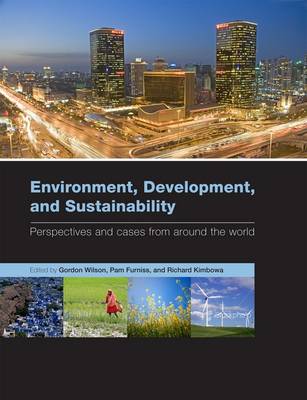 represent a process of more-or-less ruly accommodations between many players and their different interests. Governments may be the most important of these players, but they are not the only ones. The history of public health initiatives in 19th century UK provides a useful lesson in this regard, the favourable social indicators of the Indian state of Kerala compared with the rest of India another. There is no reason to suppose that these lessons of how public needs come to be defined do not also apply to the international arena.
represent a process of more-or-less ruly accommodations between many players and their different interests. Governments may be the most important of these players, but they are not the only ones. The history of public health initiatives in 19th century UK provides a useful lesson in this regard, the favourable social indicators of the Indian state of Kerala compared with the rest of India another. There is no reason to suppose that these lessons of how public needs come to be defined do not also apply to the international arena.
With respect to climate change, we owe a great debt to the scientists who created a consensus under the umbrella of the United Nations Intergovernmental Panel on Climate Change and who have ensured that the issue is on national and international agendas. We should not forget, however, the potential role of informed citizens operating individually or collectively in defining public policies and actions. This role is more than ‘green’ behaviour in terms of, for example, doing our bit to reduce carbon footprints. It is also more than our right in many countries to elect and de-elect our governments, important as that is. (In any case, at an international scale, a world government that is democratically accountable is not even on the radar.) Nor does it necessarily concern our ability to mount 10, or even 100, demonstrations relating to Copenhagen. It does concern, however, our abilities to apply individual and collective pressure through a combination of working with, and where necessary confronting, governments and their international manifestations, and demonstrating alternatives.
I stress the qualifying adjective ‘informed’ which I don’t restrict to citizen understanding of the science of climate change and its likely impacts, nor of the social science of understanding socio-economic impacts. Such understandings are undoubtedly necessary to be ‘informed’ but they are not sufficient. Knowing the ‘facts’ is neither enough to change personal lifestyles nor to change po

By: Kirsty,
on 12/2/2009
Blog:
OUPblog
(
Login to Add to MyJacketFlap)
JacketFlap tags:
copenhagen,
COP15,
joe smith,
UK,
Science,
Current Events,
Geography,
A-Featured,
United Nations,
sustainability,
climate change,
Enviroment,
Add a tag
By Kirsty McHugh, OUP UK
Joe Smith is senior lecturer in environment in the social sciences faculty at The Open University and Co-Director of the Cambridge Media & Environment Programme which runs seminars on environmental change and development issues for senior media decision makers. Joe is initiator and chair of Interdependence Day a new communications and research project. He is also co-author (with Stephen Peake) of Climate Change: From Science to Sustainability, an interdisciplinary introduction that takes the reader from keystones of the underlying science – and not just the headlines – through to the philosophical and political consequences of climate change. In his Countdown to Copenhagen post, he talks about ‘truth’ and climate change in the light of the recent hacked emails at the University of East Anglia.
For the rest of the Countdown to Copenhagen posts, click here.
What to say about ‘truth’ and climate science in the context of what appears to be the theft of ten years worth of private emails between climate researchers by mischief-making hackers? I’m not going to comment further on the incident but it proves once again that there are some highly motivated people out there who want to tear up the narrative that climate change is human caused and requires urgent action. There are a small number of high profile media commentators who have savoured the opportunity to insist once again that climate change is a massive science fraud and big-state tax plot.
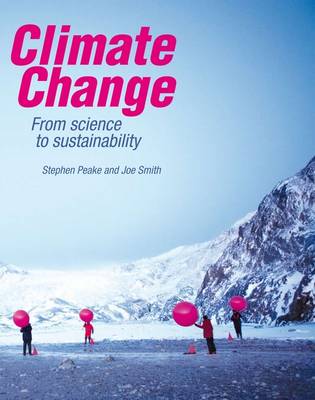 How should we investigate the notion that humans are changing the climate? Who is best equipped to advise on how to behave in an experiment that we may only get to run once? If I wanted to know about a very complex scientific problem I’d start looking for answers by running the biggest scientific peer review process in human history. The IPCC is exactly that. It was set up to do the best job possible in making sense of an enormously demanding intellectual question: does human activity influence the climate – in the past, present and future?
How should we investigate the notion that humans are changing the climate? Who is best equipped to advise on how to behave in an experiment that we may only get to run once? If I wanted to know about a very complex scientific problem I’d start looking for answers by running the biggest scientific peer review process in human history. The IPCC is exactly that. It was set up to do the best job possible in making sense of an enormously demanding intellectual question: does human activity influence the climate – in the past, present and future?
The dominant model of science is one of aggressive (individual or lab based) competition to get the most convincing arguments supported by publicly published evidence, and to break new ground with original and supportable arguments. As an outsider looking in I think that that can be an unproductive form of ‘knowledge generation’, but one thing for sure is that it isn’t designed to produce consensus around such a complex topic as climate change. The IPCC is a review process with only a very small secretariat, and the thousands of scientists who generate the work across many disciplines that make up the raw material of the review are all highly competitive. The IPCC reports should be all the more disturbing for the fact that they point to so much willingness to agree within the science community on the headline themes.
Why then does a substantial minority of the population feel more confidence in Lords Monckton or Lawson, or the Daily Mail’s Melanie Phillips? It is the intellectual equivalent of backing a Sunday pub team of vain injured veterans against Real Madrid’s best side. We’ve all got pretty good feeling for who has the better f

By: Kirsty,
on 11/30/2009
Blog:
OUPblog
(
Login to Add to MyJacketFlap)
JacketFlap tags:
UK,
global warming,
United Nations,
VSI,
climate change,
very short introduction,
copenhagen,
COP15,
mark maslin,
Science,
Current Events,
Geography,
A-Featured,
A-Editor's Picks,
Add a tag
By Kirsty McHugh, OUP UK
Next week sees the beginning of the United Nations Climate Change Conference, held in Copenhagen. The aim of the conference is to reach an ambitious global agreement including all the countries in the world. This week OUPblog will be posting a series of Countdown to Copenhagen blogs from some of our authors. Kicking things off is Professor Mark Maslin, who is the Head of Department and Director of the Environment Institute at University College London, and the author of Global Warming: A Very Short Introduction.
Climate change is the most important science issue of the 21st century, challenging the very structure of our global society. The COP 15 meeting at Copenhagen provides a real opportunity for global society to decide how to deal with this major threat. We already know that atmospheric carbon dioxide has risen from a pre-industrial level of 280 ppmv to 389 ppmv by 2009. This has already caused climate change; with clear evidence for a 0.75°C rise in global temperatures and 22 cm rise in sea level during the 20th century. In the last 150 years the twelve warmest years on record have all occurred in the last thirteen years: 1998 was the warmest, followed by 2005, 2002, 2003 and 2004, while 2008 was the 10th warmest year on record. The threat of climate change has been assessed in the Intergovernmental Panel on Climate Change (IPCC) 2007 synthesis report. Based on 23 complex climate models they predict that global temperatures by 2100 could rise by between 1.1°C and 6.4°C (best estimates being 1.8˚C to 4˚C). Sea level could rise by between 28 cm and 79 cm, more if the melting of Greenland and Antarctica accelerates. The potentially effects of climate change on human society are devastating, including drastic changes in global health, agriculture, the economy, water resources, coastal regions, storms and other extreme climate events, and biodiversity. The IPCC states that the scientific evidence for global warming is unequivocal and there is very high confidence that this is due human activity. This view is supported by a vast array of learned organisations, including the Royal Society and American Association for the Advancement of Science. This is why the negotiations at COP15 at Copenhagen are so important.
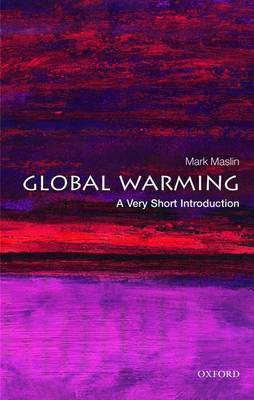 I believe a legally binding agreement to limited global warming to a maximum of 2˚C above pre-industrial temperatures is required at Copenhagen. This has profound implications as the science tell us this is equivalent to putting a total of a trillion tonnes of carbon in the atmosphere. As we have already emitted half a trillion tonnes the political challenge at Copenhagen and COP16 in Mexico is how to limit the world to just another half a trillion tonnes of carbon. The first challenge is the essential involvement of Developing countries in long-term carbon reduction targets because the scale their current and future pollution. Of course this will only occur is the rich countries such as the EU and USA lead the way with stringent cuts. It is also moral imperative, however, that people in the poorest countries have the right to develop and to obtain the same life style we currently enjoy. We also need massive investment in alternative/renewable power sources and low carbon technology. One of the key ways that Developing Countries may be encouraged to achieve reduction targets given a positive lead by the western world would be through carbon trading and other financial incentives. The s
I believe a legally binding agreement to limited global warming to a maximum of 2˚C above pre-industrial temperatures is required at Copenhagen. This has profound implications as the science tell us this is equivalent to putting a total of a trillion tonnes of carbon in the atmosphere. As we have already emitted half a trillion tonnes the political challenge at Copenhagen and COP16 in Mexico is how to limit the world to just another half a trillion tonnes of carbon. The first challenge is the essential involvement of Developing countries in long-term carbon reduction targets because the scale their current and future pollution. Of course this will only occur is the rich countries such as the EU and USA lead the way with stringent cuts. It is also moral imperative, however, that people in the poorest countries have the right to develop and to obtain the same life style we currently enjoy. We also need massive investment in alternative/renewable power sources and low carbon technology. One of the key ways that Developing Countries may be encouraged to achieve reduction targets given a positive lead by the western world would be through carbon trading and other financial incentives. The s

By: SarahN,
on 9/24/2009
Blog:
OUPblog
(
Login to Add to MyJacketFlap)
JacketFlap tags:
World History,
Russia,
Kingdom,
diplomacy,
relations,
States,
Bosco,
United,
Security Council,
David Bosco,
international relations,
Nations,
Council,
20th,
century,
international,
History,
war,
China,
American History,
France,
A-Featured,
and,
Security,
United Nations,
Obama,
Add a tag
Sarah Noonan, Intern
Yesterday David L. Bosco blogged for us about Obama’s speech in front of the UN General Assembly. Below is an excerpt from his new book, Five To Rule Them All: The UN Security  Council and the Making of The Modern World, which tells the inside story of this remarkable diplomatic creation, illuminating the role of the Security Council in the postwar world, and making a compelling case for its enduring importance. In the excerpt below we are introduced to the Security Council.
Council and the Making of The Modern World, which tells the inside story of this remarkable diplomatic creation, illuminating the role of the Security Council in the postwar world, and making a compelling case for its enduring importance. In the excerpt below we are introduced to the Security Council.
The Security Council is like no other body in history. Its five permanent members-China, France, Russia, the United Kingdom, and the United States-account for nearly 30 percent of the world’s population and more than 40 percent of global economic output. In military affairs, their dominance is even more overwhelming. They control more than 26,000 nuclear warheads, 99% of all those in existence. They have a combined 5.5 million men and women in arms. When the Council is united, its members can wage war, impose blockades, unseat governments, and levy sanctions, all in the name of the international community. There are almost no limits to the body’s authority.
The council usually meets in the UN headquarters complex on New York’s East River, but it has greater power and authority than the rest of the sprawling organization. The council is a creature of great-power politics, not international bureaucracy. It is built on the assumption that five of the strongest nations have the right and duty to safeguard the globe. Most of the UN structure insists that member states are equal; the council, by contrast, grants the most powerful countries special rights and responsibilities.
The idea that the great powers should chaperone the world is not new. Coalitions of powerful nations-including the Congress of Vienna and the Holy Alliance in the eighteenth and nineteenth centuries-have tried before. The Geneva-based League of Nations, inaugurated in 1920, was the world’s answer to the horror of the First World War. It constituted the first fully developed world political organization, and it had a council of major powers charged with preserving the peace. The league and its council died prematurely when they failed to prevent an even more devastating war, but the idea of a world organization endured.
During its almost seven decades of operation, the UN Security Council has launched a broad range of diplomatic, legal, and even military initiatives to provide order. Since the late-1980s, its activities have increased dramatically. The council has blessed armed interventions in places like Bosnia, Somalia, Haiti, and Kuwait. It has imposed sanctions on the regimes in Serbia, Libya, and Sudan; launched war crimes courts to try sitting heads of state; and targeted terrorist finances. During the Cold War, the United States usually felt comfortable exercising its military power without the council’s permission. No longer. Even the George W. Bush administration-with its deep skepticism of the United Nations-worked to get the council’s approval for its policies. For many, the 2003 U.S.-led invasion of Iraq demonstrated the perils of operating without the council’s blessing, and the body has emerged from the imbroglio active and relevant. In 2007, the council authorized peacekeeping missions that involved more than 100,000 troops from dozens of nations. From nuclear proliferation to the global war against terrorism to genocide in Africa, the council is often the cockpit for global politics.
Yet even the council’s vigorous post-Cold War activity has fallen well short of effective global governance. Atrocities and crimes against humanity still plague many parts of the globe. Entire countries have collapsed, and in so doing they have exported refugees, drugs, and radicalism. Since the 1980s, Pakistan, India, and North Korea have tested nuclear weapons while the council watched. These shortcomings have led to frequent and angry charges that it is feckless, impotent, and unprincipled. More than a few commentators have charged that the United Nations and its council are an impediment rather than an aid to world order.
The council’s new activism has stirred hopes that it will assure world order, stop atrocities, and counter global threats like terrorism and weapons proliferation. Yet it exists in a world of realpolitik. Its members are, above all, powerful states with their own diverging interests. Time and again, the council’s performance has dashed hopes that its members would somehow rise above their narrow interests and work together to establish a more peaceful and just world.

 A recently established web site called Free Rice promotes literacy and helps to feed the hungry. Rice is a staple for half of the world's population. The free rice is donated to the United Nations World Food Program by sponsors whose ads appear on the page. The site itself does not make money. So, increase your word power and feed some hungry people.
A recently established web site called Free Rice promotes literacy and helps to feed the hungry. Rice is a staple for half of the world's population. The free rice is donated to the United Nations World Food Program by sponsors whose ads appear on the page. The site itself does not make money. So, increase your word power and feed some hungry people.






 Dinah makes progress for all in Nairobi, Kenya. While waiting in line at a carwash, Dinah noticed two young boys straining to see what she was reading – a children’s book she had purchased for her niece. When she asked if they would like to join her, the boys lit up.
Dinah makes progress for all in Nairobi, Kenya. While waiting in line at a carwash, Dinah noticed two young boys straining to see what she was reading – a children’s book she had purchased for her niece. When she asked if they would like to join her, the boys lit up. As a young teacher, Katie yearned to improve all aspects of her students’ lives, inside and outside the classroom. Her holistic approach led her to create Girls Inc. of Alameda County, a program that inspires girls to be strong, smart and bold. Katie and her team reinforce what their girls learn at school, help them become fluent English speakers, provide them with healthy meals and expose them to subjects girls aren’t always encouraged to study, like science, technology and athletics.
As a young teacher, Katie yearned to improve all aspects of her students’ lives, inside and outside the classroom. Her holistic approach led her to create Girls Inc. of Alameda County, a program that inspires girls to be strong, smart and bold. Katie and her team reinforce what their girls learn at school, help them become fluent English speakers, provide them with healthy meals and expose them to subjects girls aren’t always encouraged to study, like science, technology and athletics..jpg)




 On December 2009, the United Nations General Assembly adopted a
On December 2009, the United Nations General Assembly adopted a  represent a process of more-or-less ruly accommodations between many players and their different interests. Governments may be the most important of these players, but they are not the only ones. The history of public health initiatives in 19th century UK provides a useful lesson in this regard, the favourable social indicators of the Indian state of Kerala compared with the rest of India another. There is no reason to suppose that these lessons of how public needs come to be defined do not also apply to the international arena.
represent a process of more-or-less ruly accommodations between many players and their different interests. Governments may be the most important of these players, but they are not the only ones. The history of public health initiatives in 19th century UK provides a useful lesson in this regard, the favourable social indicators of the Indian state of Kerala compared with the rest of India another. There is no reason to suppose that these lessons of how public needs come to be defined do not also apply to the international arena. How should we investigate the notion that humans are changing the climate? Who is best equipped to advise on how to behave in an experiment that we may only get to run once? If I wanted to know about a very complex scientific problem I’d start looking for answers by running the biggest scientific peer review process in human history. The IPCC is exactly that. It was set up to do the best job possible in making sense of an enormously demanding intellectual question: does human activity influence the climate – in the past, present and future?
How should we investigate the notion that humans are changing the climate? Who is best equipped to advise on how to behave in an experiment that we may only get to run once? If I wanted to know about a very complex scientific problem I’d start looking for answers by running the biggest scientific peer review process in human history. The IPCC is exactly that. It was set up to do the best job possible in making sense of an enormously demanding intellectual question: does human activity influence the climate – in the past, present and future? I believe a legally binding agreement to limited global warming to a maximum of 2˚C above pre-industrial temperatures is required at Copenhagen. This has profound implications as the science tell us this is equivalent to putting a total of a trillion tonnes of carbon in the atmosphere. As we have already emitted half a trillion tonnes the political challenge at Copenhagen and COP16 in Mexico is how to limit the world to just another half a trillion tonnes of carbon. The first challenge is the essential involvement of Developing countries in long-term carbon reduction targets because the scale their current and future pollution. Of course this will only occur is the rich countries such as the EU and USA lead the way with stringent cuts. It is also moral imperative, however, that people in the poorest countries have the right to develop and to obtain the same life style we currently enjoy. We also need massive investment in alternative/renewable power sources and low carbon technology. One of the key ways that Developing Countries may be encouraged to achieve reduction targets given a positive lead by the western world would be through carbon trading and other financial incentives. The s
I believe a legally binding agreement to limited global warming to a maximum of 2˚C above pre-industrial temperatures is required at Copenhagen. This has profound implications as the science tell us this is equivalent to putting a total of a trillion tonnes of carbon in the atmosphere. As we have already emitted half a trillion tonnes the political challenge at Copenhagen and COP16 in Mexico is how to limit the world to just another half a trillion tonnes of carbon. The first challenge is the essential involvement of Developing countries in long-term carbon reduction targets because the scale their current and future pollution. Of course this will only occur is the rich countries such as the EU and USA lead the way with stringent cuts. It is also moral imperative, however, that people in the poorest countries have the right to develop and to obtain the same life style we currently enjoy. We also need massive investment in alternative/renewable power sources and low carbon technology. One of the key ways that Developing Countries may be encouraged to achieve reduction targets given a positive lead by the western world would be through carbon trading and other financial incentives. The s
 Council and the Making of The Modern World
Council and the Making of The Modern World